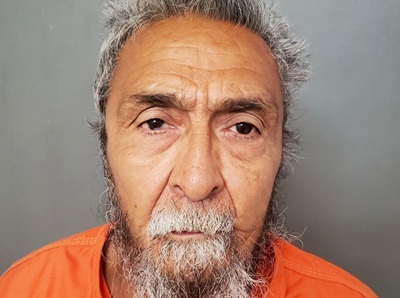
Saul Gonzalez mugshot. Credit: Texas DPS
by Bode Technology
This September, during Cold Case Awareness Month, we are reminded of the importance of never giving up on unsolved cases. Each case represents a person, a family, and a community still waiting for justice. A recent arrest in La Salle County, Texas, underscores how advances in DNA testing and steadfast investigative work can help bring answers and a chance at justice—no matter how much time has passed.
On July 19, 2005, Valerie Laguna and her unborn child were found tragically murdered at Cristo Rey Cemetery in Cotulla, Texas. Valerie was just 25 years old and 8 months pregnant when her and her unborn child’s life were violently taken. Investigators later determined she had been sexually assaulted, beaten, and strangled—an unthinkable act that devastated her family and community.
In the aftermath of her death, Valerie’s loved ones were left with unimaginable grief and unanswered questions. For nearly two decades, they lived without knowing who was responsible. Despite the passage of time, Valerie’s family never stopped hoping for justice, and investigators never stopped working her case. Detectives continued to re-examine the evidence, follow new leads, and search for the breakthrough that could bring accountability for Valerie and her child.
From the beginning, the La Salle County Sheriff’s Office and the Texas Rangers worked tirelessly on Valerie’s case, interviewing witnesses and collecting DNA samples. For years, however, the evidence alone did not provide the breakthroughs needed to make an arrest. That changed as new technologies became available.
In 2020, the La Salle County Sheriff’s Office submitted evidence to Bode Technology for advanced DNA testing. Profiles were developed, and in 2023, Bode scientists conducted additional analyses using improved techniques and STRMix. Those efforts revealed a crucial DNA inclusion connecting the suspect to evidence from the crime scene.
Valerie’s case was also supported by the Texas Department of Public Safety’s Sexual Assault Kit Initiative (SAKI), funded by the Department of Justice’s Bureau of Justice Assistance. Programs like SAKI provide essential resources that allow agencies to revisit unsolved sexual assaults and related homicides. By combining funding with advancing science, law enforcement agencies are better equipped to pursue justice in cases that once seemed out of reach.
On Aug. 29, 2025, after nearly 20 years, an arrest was made. Saul Gonzalez, 66, was indicted and charged with capital murder in connection to Valerie’s death. This milestone was the result of collaboration among the La Salle County Sheriff’s Office, Texas Rangers, Williamson County Sheriff’s Office, DPS Crime Laboratory, the University of North Texas Center for Human Identification, and the forensic scientists at Bode Technology.
Valerie’s story is a powerful reminder of why we must continue to re-evaluate and test evidence from unsolved cases. Each piece of evidence has the potential to tell a story—sometimes one that can only be heard when science advances to the needs of the case. With continued developments in forensic DNA methodologies and the support of funding programs, justice can still be achieved, even decades later.
At Bode Technology, we are humbled to play a part in supporting law enforcement agencies across the country as they pursue answers for victims and families. Cold Case Awareness Month serves as an important call to action: it’s never too late for answers or justice, these cases are not forgotten, and neither are the people at the heart of them.